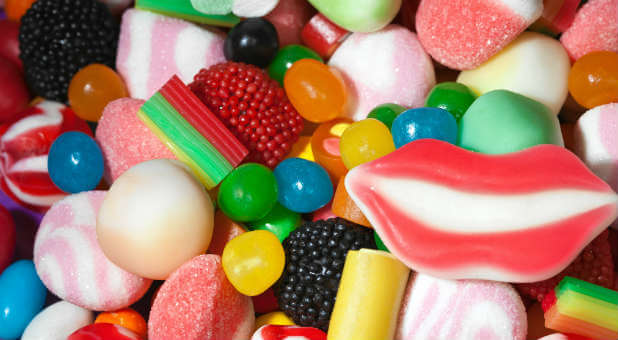When I was child, I associated sweets with comfort.
Back then I thought subconsciously, “Food is love.”
My mother was a single mom. She worked a lot to take care of my younger sister and me.
Before she would leave us with the sitter, she always gave me money so that I could go to our neighborhood convenience store to get candy.
I felt deep loneliness when my mother left to go to work. But I did not know how to deal with that loneliness.
The only comfort I had as a child was a chocolate bar. Eating the candy made me feel better.
Unfortunately, I took that same coping pattern into adulthood.
Whenever I felt emotionally stressed or upset, I craved candy and other sweets. I never realized that I was coping emotionally the same way I did when I was five.
I still viewed candy as my best friend.
Can you relate to food being associated with love?
Many people aren’t aware of it when food is meeting an emotional need in their lives. That is why they often resist changing their eating habits.
They fear leaving an empty space where that food used occupy.
Take my example. When I was 240 pounds, I viewed Pepperidge Farm coconut cake as a close friend.
When I went grocery shopping, I brought my friend home. I would get a piece of the cake, sometimes several pieces. Then my friend and I would settle down on the couch to watch television together.
The cake would taste good. It gave me a feeling of fullness, intimacy. But afterwards when I was stuffed, I’d feel sick, ashamed, and guilty.
In a way, my relationship with food was like being in an abusive relationship—or as I’d imagine it would be.
I’d try to get out of the relationship by going on a diet. But I did not stay away for long.
After all, it meant losing that comforting relationship. Maybe I wasn’t happy, but at least that relationship was familiar.
Grief and fear seized me whenever I thought about life without my friend. So I always went back.
But then, my friend turned on me. A chest pain hit me on December 11, 2003. I thought I was going to die.
Then God said, “It is not supposed to be this way.” I had a choice to make.
Was I willing to replace that old friend with a new one, one who would truly love and care for me?
You see, in all that time I failed to realize something.
Sweets could not love me back!
Through His wisdom and much prayer, He showed me how to change my beliefs.
He gave me the strength to change the way I shopped too. At first, I could not even go down the same aisle where the cake was!
If I did, I would find myself looking over at the cake with longing, tempting myself to take it back home with me.
It felt weird and wrong to change my habits at first. That’s the way it is when your brain is adjusting to a new pattern.
However, God was with me every step of the way.
I knew that if I could make it through the adjustment period, I was on my way to a healthier life.
I wanted to live with purpose and joy. My old eating habits threatened that vision, so they had to go!
What about you? Think about the foods that you love to eat—the ones you can’t imagine living without. It’s typically not just “sweets” or “chips.” It is a specific type or brand that you run to consistently.
What emotional roles do those items fulfill in your life?
Those emotional roles represent real needs. Are you ready to deal with the real needs in your life rather than using a particular food as a bandage over it?
When the real needs in your life are met, you live in a more stable emotional and mental position.
Take comfort in Psalm 91:1-2. God has power to meet your every need:
He who dwells in the shelter of the Most High
shall abide under the shadow of the Almighty.
I will say of the Lord, “He is my refuge and my fortress,
my God in whom I trust.”
Be blessed in health, healing and wholeness. {eoa}
For the original article, visit TakeBackYourTemple.com.
Kimberly Taylor is the author of The Weight Loss Scriptures and many other books. Once 240 pounds and a size 22, she can testify to God’s goodness and healing power.



















































